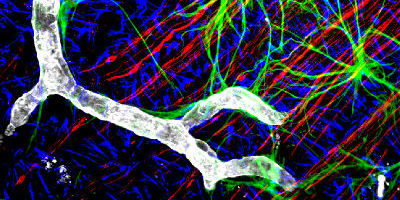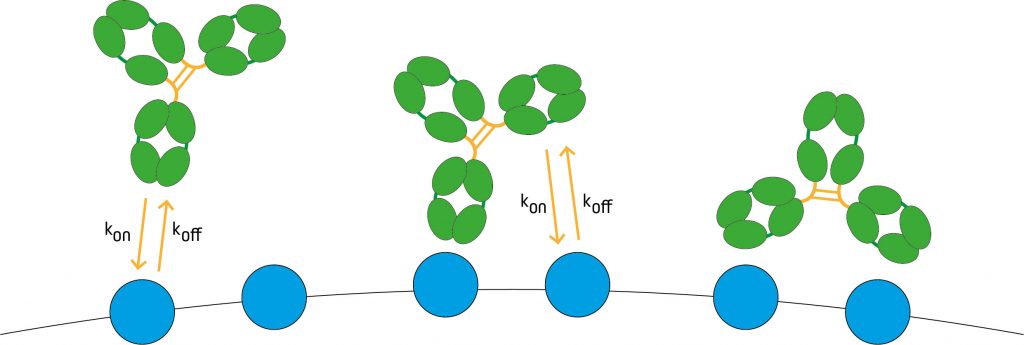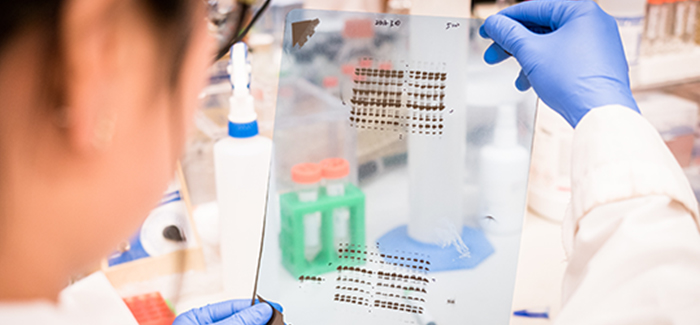Antibody basics
Antibodies are expressed on the surface of B cells, one of the major cell types involved in adaptive immunity. Because each B cell must express a unique antibody for an individual to mount an effective immune response, an almost infinite number of antibodies exists. Antibody diversity is achieved via three main mechanisms – V(D)J recombination, junctional diversification, and somatic hypermutation – with the latter producing higher affinity antibodies (affinity maturation) as the adaptive immune response unfolds. Affinity is one of two key properties that defines the overall strength of the antibody-antigen interaction. The other is avidity, which has a different meaning.




